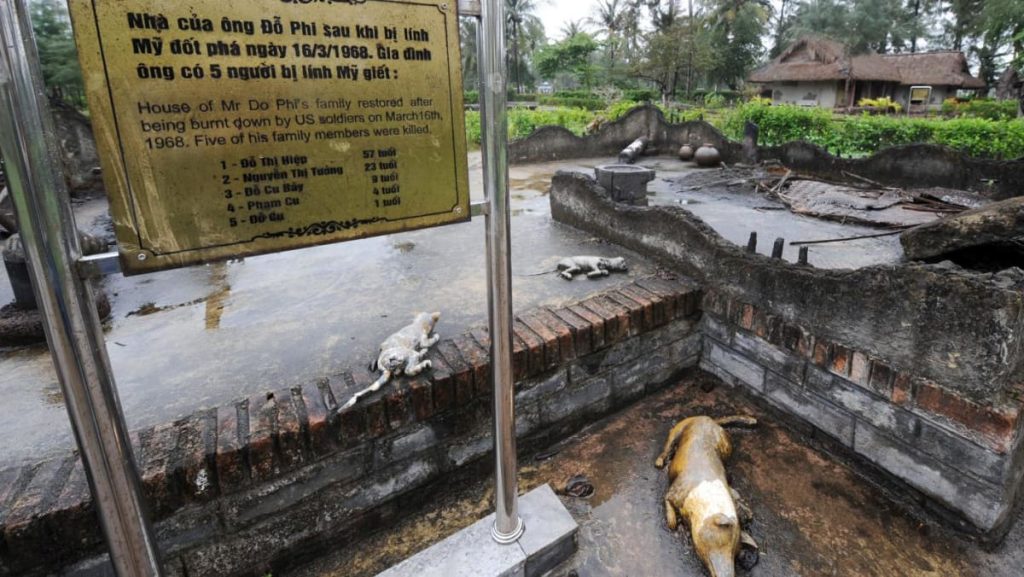William Calley, the US Army platoon leader responsible for the My Lai massacre during the Vietnam War, has passed away at the age of 80. Initially reported by The Washington Post and The New York Times in April, the cause of his death remains undisclosed. Calley’s son, William L Calley III, did not respond to requests for comment.
The My Lai massacre took place on March 16, 1968, when American soldiers killed 504 civilians in the Vietnamese hamlet of Son My. Calley, charged with 102 deaths, was convicted of killing 22 civilians in an Army court martial and sentenced to life in prison. However, President Richard Nixon ordered his release after three days under house arrest, sparking controversy and dividing public opinion.
Despite being told that My Lai was a hub of communist guerrillas, US forces encountered minimal armed resistance and found few weapons. Nevertheless, the soldiers carried out mass killings and sexual assaults. While four soldiers faced charges related to the massacre, Calley was the only one convicted. He served three years of home detention in Fort Benning and was later released on parole, exiting the Army.
Calley, who claimed to have followed orders and considered himself a scapegoat, faced extensive criticism and backlash for his role in the My Lai massacre. He chose to remain silent on the event in later years, refusing to engage with the media or historians. However, in 2009, he publicly apologized for his actions at a Kiwanis Club event in Columbus, Ohio, expressing remorse for the lives lost and the impact on individuals and their families.
Born in Miami in 1943, Calley had a tumultuous upbringing and a challenging early adulthood marked by multiple high school transfers and various jobs. After joining the Army in 1966, he excelled and graduated from Officers’ Candidate School at Fort Benning, coincidentally a year before the My Lai massacre. Following his discharge from the Army, Calley ventured into the jewelry business, becoming a certified gemologist and marrying Penny Vick in 1976.
Throughout his life, Calley grappled with the repercussions of the My Lai massacre and the moral complexities of his actions. Despite limited public statements on the event, he accepted responsibility for his role in the tragedy and expressed regret for the lives lost. His passing marks the end of a controversial chapter in American military history, prompting reflection on the consequences of war and the importance of accountability for war crimes.


